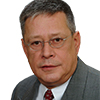International Safety and Crash-Test Regulations: Current Status and Future Developments
课程介绍
Since the 1960 ' s, the regulation of vehicle safety performance has had a major impact on vehicle and system design. As automotive manufacturing has evolved into an integrated global system, understanding and anticipating legal requirements has become an immense challenge. Regulators collaborate and diverge in how they address road-safety policy goals. Regulatory changes in a single market can translate into global customer requirements. And these requirements are continuously evolving. In a compact program, this two-day seminar provides a worldwide update on the passive safety landscape, covering local, national, regional, and international policy and rulemaking developments. The first segment of the seminar focuses on regulatory institutions and processes. By understanding the regulatory environment, including the trend towards an integrated global regulatory system, businesses can better prepare for changes that impact competitiveness and customer satisfaction. The second segment applies this knowledge to current and future regulatory requirements. The seminar covers crashworthiness (frontal, side, rear impact, etc.) as well as pedestrian protection and new technologies.
谁该参加?
This seminar should be of interest to anyone involved with meeting and anticipating legal requirements for vehicle safety performance across international markets. The course provides a compact review of changes in passive safety requirements and current priorities across the international regulatory community. Moreover, the course provides knowledge critical to understanding differences in the way regulators establish and enforce these legal requirements.
课程目标
This course informs participants of recent developments and discussions within the global regulatory community concerning passive safety. The seminar explores differences in regulatory systems and philosophies, in compliance and enforcement, and in the forces behind the regulation of vehicle safety. The course provides participants with a broad understanding of current regulatory directions and guidance on how to follow, and even influence, future requirements.
课程内容
- History of safety regulation and development of legal regimes (e.g., self-certification, type approval, product liability, in-use surveillance)
- Regulatory agencies and rulemaking processes (e.g., UN World Forum for the Harmonization of Vehicle Regulations, European Union, U.S. National Highway Traffic Safety Administration, etc.)
- Regulatory drivers and priorities (e.g., accident data, injury dynamics, injury assessment criteria, test tools, harmonization, whole vehicle approval, competitiveness, etc.)
- Types and purposes of regulations (UN Regulations, Global Technical Regulations, Federal Motor Vehicle Safety Standards, EU Regulations and Directives, etc.)
- Developments in crashworthiness and occupant protection requirements (frontal impact, side impact, pole-side impact, full width barrier, offset deformable barrier, mobile barrier, etc.)
- Vulnerable road user (VRU) protection (e.g., pedestrian safety, cyclist safety)
- Safety of new propulsion technologies (electric vehicles, hydrogen fuel-cells, minimum vehicle noise levels)
- Passive safety implications of new safety technologies (e.g., emergency call systems, collision avoidance, VRU detection, automated driving)
Dr. Thomas Kinsky
Humanetics Europe GmbH
Dr. Thomas Kinsky completed his studies in automotive engineering at the TU Dresden in 1991 and received his doctorate at the TU Graz in 2015. From 1991 to 1995 he worked as an officially certified expert at TÜV Rheinland and then took over the management of the vehicle construction department at a small medium-sized company. From 1999 to 2018 he was employed at Opel Automobile GmbH in the area of vehicle regulations. Last as a senior expert, he was responsible for the development of legislation on passive vehicle safety and represented Opel in discussions with authorities and associations. Since 2018 he has been Director Business Development at Humanetics Europe GmbH. In this role he is Humanetics' representative for all topics regarding dummy development as well as for the requirements of passive and active safety.
John F. Creamer
GlobalAutoRegs.com
John Creamer is the founder of GlobalAutoRegs.com and a partner in The Potomac Alliance, a Washington-based international regulatory affairs consultancy. In his client advisory role, Mr. Creamer is regularly involved with meetings of the UN World Forum for the Harmonization of Vehicle Regulations (WP.29). Previously, he has held positions with the US International Trade Commission and the Motor & Equipment Manufacturers Association (representing the US automotive supplier industry), as the representative of the US auto parts industry in Japan, and with TRW Inc. (a leading global automotive safety systems supplier).
| 日期 | 语言 | 价格 | 课程番号 |
|---|---|---|---|
| 05 May - 08 May 2025 | English
 |
1750 EUR (1450 EUR till 2025.04.07 ) | 4494 |
| 地点 | |||
| Online (Online-Seminar) | » 注册 | ||
| Instructor | |||
|
John F. Creamer
|
|||
| 日期 | 语言 | 价格 | 课程番号 |
|---|---|---|---|
| 12 Nov - 13 Nov 2025 | Deutsch
 |
1450 EUR (1750 EUR from 2025.10.16 ) | 4479 |
| 地点 | |||
| Alzenau (carhs.training gmbh, Siemensstraße 12, 63755 Alzenau) | » 注册 | ||
| Instructor | |||
|
Dr. Thomas Kinsky
|
|||
| 时间 | |||
| 星期三 | 09:00 - 17:00 | ||
| 星期四 | 09:00 - 17:00 | ||
本课程也可以上门培训。培训讲师前往贵公司--节省客户的时间和移动费用。进一步联系。
德国联系人
 Dr. Dirk Ulrich
Dr. Dirk Ulrich
电话: 06023 - 96 40 - 66
dirk.ulrich@carhs.de
All prices are exclusive of VAT.
